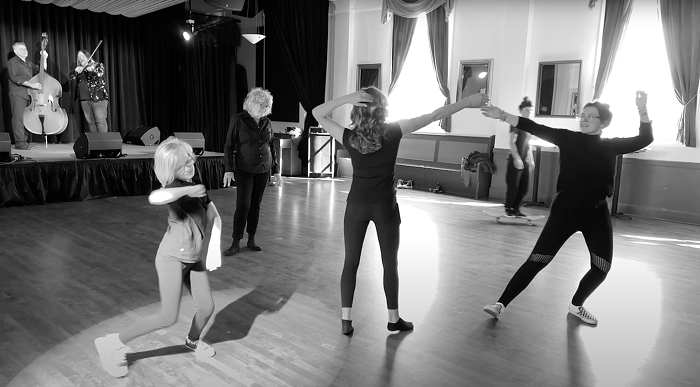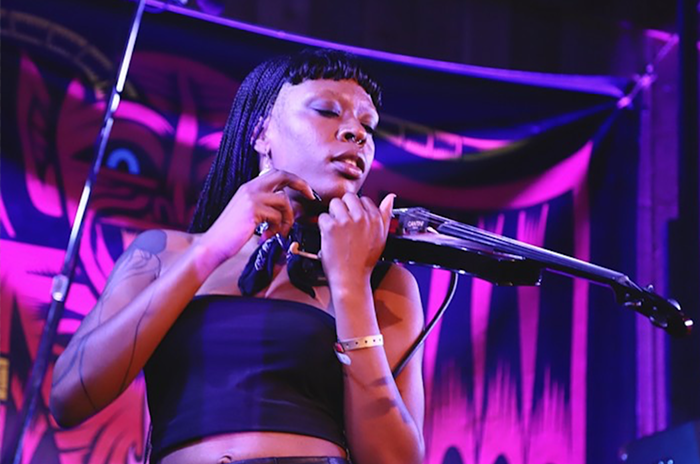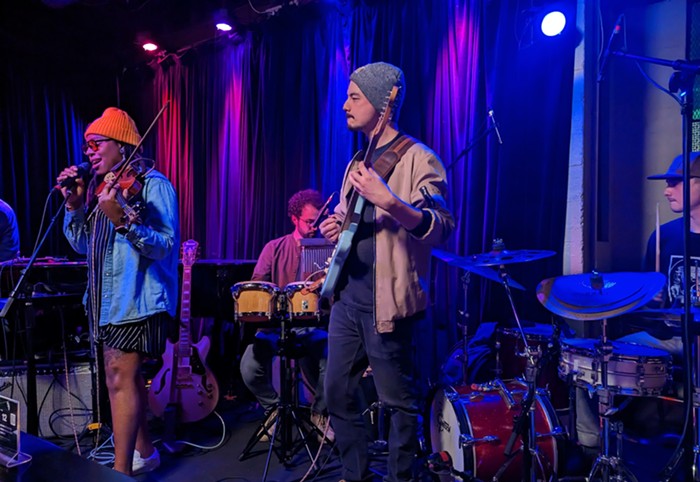THE ST. JOHNS BAR where Willy Vlautin and I first meet is a little too ordinary. "You want to go somewhere weirder?" he asks immediately. We leave, and he leads me down an alley and into the back door of another bar, an old off-track-betting place filled with old-timers. The bartender pulls us each a beer out of the type of plastic cooler that you take on a camping trip. Vlautin's at ease in here; it's the kind of unpretentious, slightly seedy place that gives him ideas for stories.
He and I have met to talk about his band Richmond Fontaine and their newest record, The High Country, which is their ninth full-length of new material and possibly their most ambitious work to date. It's a fully realized concept album, with characters and dialogue and sound effects, set in the Oregon logging country that stretches along the south side of the Columbia River in between Portland and the Pacific. Like Richmond Fontaine's previous work, it's at times devastatingly sad, but unlike those records—or Vlautin's three published novels—The High Country isn't quite rooted in the real world. Vlautin has forgone the plainspoken, subdued grittiness that characterizes so much of his work in favor of a lurid, American-gothic tale of love, murder, and logging.
"I came home from some tour; I think it was October. It was already really gloomy," Vlautin says. "I live five miles outside Scappoose and I'm around huge trees, so you're just kind of socked in this kind of gloom. It's very gothic, and the story is basically a gothic story. Logging trucks go by my house every morning and they just shake the house. That morning when I first came home they were going by every 20 minutes. So I wrote 'The Meeting on the Logging Road,' and what I wanted it to be was like a strung-out Bing Crosby kind of song, really simple, dark, [with a] 1930s feel."
The song is a spare and gentle ballad for guitar and voice, sung by the character of the Mechanic. In it, he asks another character, the Girl, to leave her distant husband and her dead-end job, and go away with him. (On the record, the Girl is voiced by Deborah Kelly, although for the band's current tour, Kelly's sister—and her Damnations bandmate—Amy Boone will play the part.) There are other characters, too, including a shut-in named Angus King who owns a logging bar called the Chainsaw Sea, which holds secrets underneath its foundation. There's also a dangerous man named Claude Murray, and there's a track on The High Country that's the sound of him flipping the radio dial, trying to find a song that'll calm him down. (That's Richmond Fontaine playing each of those songs Claude hears on the radio.)
"I had six months where I wasn't doing a whole lot, so I started writing for fun," Vlautin says. "I wrote the whole story, and it was all light versus dark. I was writing these romantic songs because I was in such a dark headspace, and I'm always trying to trick myself.
"When I finished the story of the record, really it's just a gothic tale. It's overly romantic, it's overly violent, it's got bits of humor mocking itself, like the B-movie dialogue part. It's got a little bit of humor with the logging songs and some of Claude Murray's antics. I wrote it all and I showed it to the guys," explains Vlautin. "They thought it was fucking nuts. But they're cool guys and they were like, 'What the hell, let's just do it.'"
Richmond Fontaine worked on The High Country with producer John Askew, who has a background in film music, and the record at times feels like an audio version of a movie. There's much more atmospheric material on this record, which comes at the expense of Vlautin's sharply candid, self-contained songs, but the result is a fully immersive—and heartbreaking—story. You can smell the giant pines that wall these characters in; you can feel the incessant, misty rain that hangs over their lives.
"It's the kind of record that, if you buy into it—if you buy into the Girl—then it works. If you fall in love with her, then it works," Vlautin says. "If not, then you're like, 'Fuck man, why are they going in this direction?' It's a risk. It's not like a beer drinkin' Friday night record. If you want to go in, you can get the whole story. But you gotta want to go in."



















